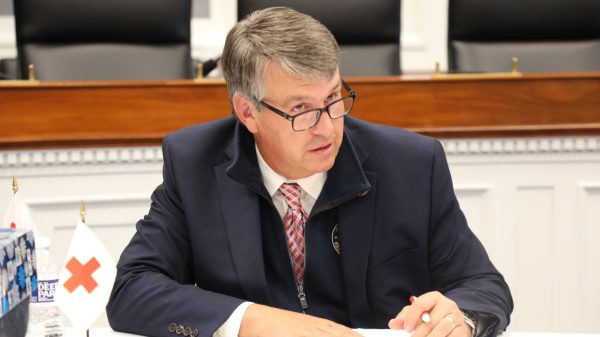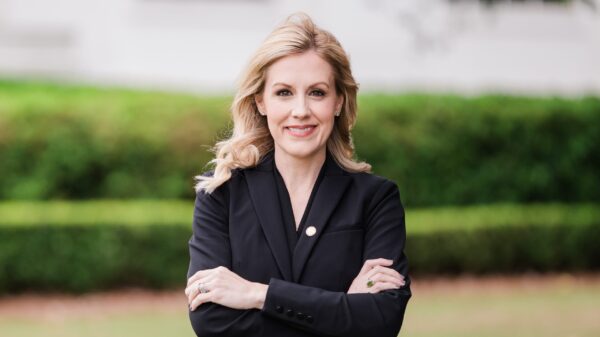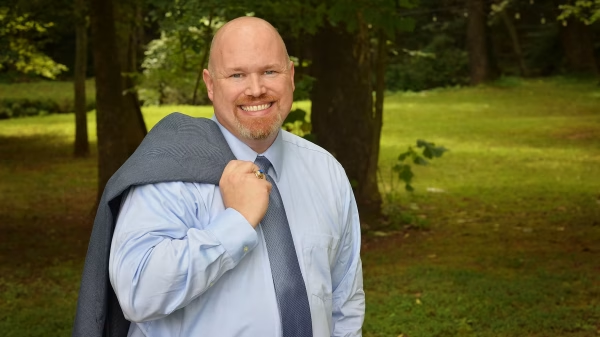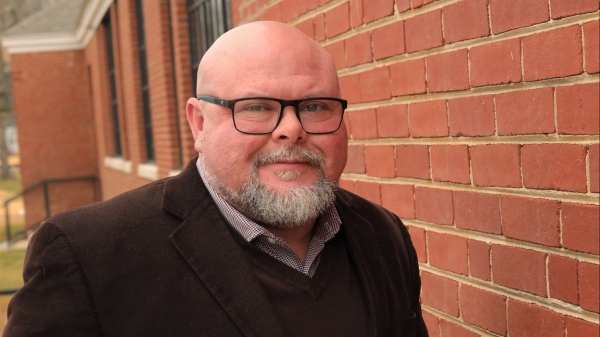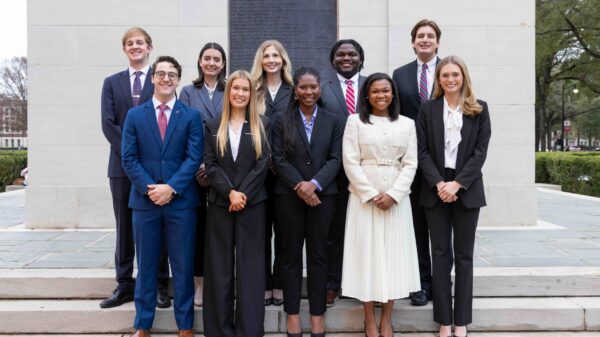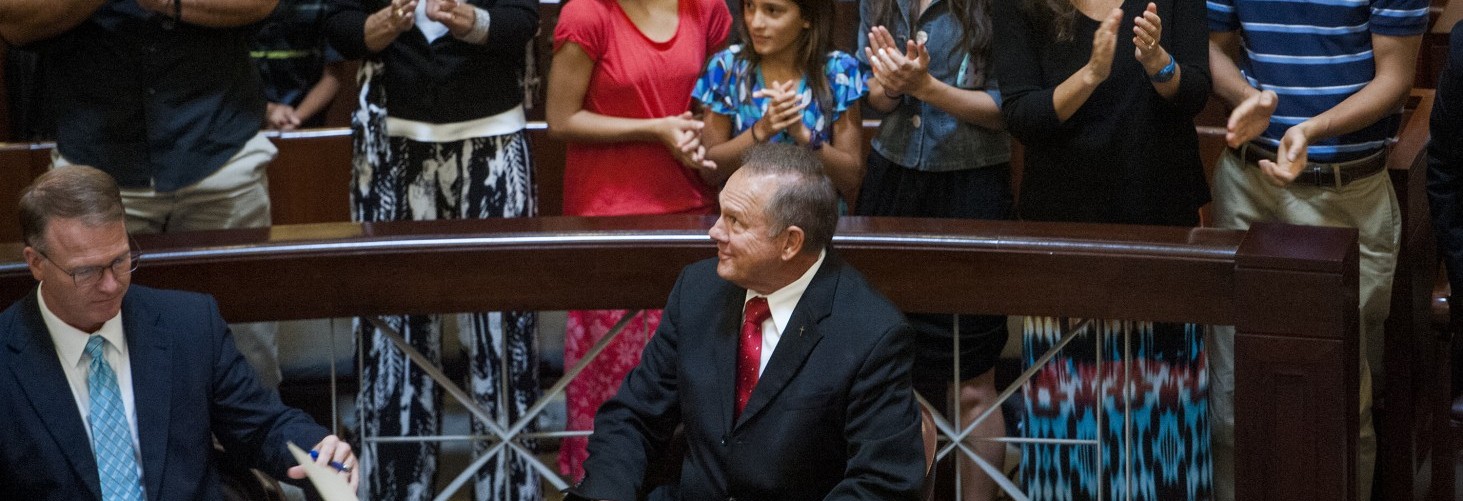By Chip Brownlee
Alabama Political Reporter
MONTGOMERY—The eight remaining associate justices of the Alabama Supreme Court plan to recuse themselves in Chief Justice Roy Moore’s appeal, the Court said in an opinion issued Monday evening. Moore previously requested the justices recuse themselves.
The justices said they will wait to recuse themselves until a Special Supreme Court is seated to hear Moore’s case.
Acting Chief Justice Lyn Stuart and Gov. Robert Bentley will gather a pool of 50 retired Alabama judges.
The pool of 50 judges will be gathered at random from all of Alabama’s retired appellate judges and justices, retired circuit judges and retired district judges. All of the judges must still be members of the State Bar Association, reside in Alabama and “be capable of serving as judges.”
The first seven judges on the list will sit as a Special Supreme Court to hear Moore’s case.
The Court decided on the plan in a 5–3 decision. Associate Justices Michael Bolin, Greg Shaw, James Main and Tommy Bryan concurred with the decision.
Associate Justices Tom Parker, Glenn Murdock and Kelli Wise dissented. Parker, who wrote the dissent, said he felt the pool should be gathered from active elective judges who remain accountable to the people of Alabama, not retired judges who can’t be held accountable for their decision in the case.
“The people of Alabama have increasingly called upon their judges to be accountable,” said Mat Staver, Moore’s lead attorney and founder of Liberty Counsel. “At every turn, this case presents new twists and turns that have never occurred in the history of Alabama.”
Alabama’s Court of the Judiciary suspended Moore last month for the remainder of his term, without pay. The Court decided Moore violated the State’s Canons of Judicial Ethics by issuing a controversial Jan. 6 administrative order. The order directed the State’s probate judges to disregard the US Supreme Court’s 2015 decision in Obergefell v. Hodges, which effectively legalized same-sex marriage in all 50 states.
On Oct. 5, Moore and his attorney at Liberty Counsel filed an appeal to the COJ’s decision with the Alabama Supreme Court, and at the time, they requested all of the sitting justices recuse.
Moore has said the COJ and the Judicial Inquiry Commission, which acted as the prosecutor in the case, were politically motivated when they suspended Moore from the bench. A majority vote of the Court chose to suspend him, but to remove him completely would have required a unanimous verdict.
Moore said the suspension was unprecedented.
“The Court of the Judiciary violated the law when it suspended Chief Justice Moore for life even though it lacked the 9-0 vote,” Staver said. “Never before under the unanimity requirement of COJ Rule 16 has any judge ever been suspended for the rest of the term. A sexting judge gets six months and a judge who writes a four-page order that is not unethical or unlawful gets suspended for life. That is not right.”
Earlier this month, Stuart fired Moore’s chief of staff and two attorneys who worked in his office. His secretary was also removed. She also ordered court marshals to deny him access to his office in the State Judicial Building.
Chief Justice Moore has filed motions asking the court to unseal the records twice. The Alabama Political Reporter last week filed to intervene, seeking an order from the court to unseal the records.
“Under State law, Moore is entitled to a final hearing by the State Supreme Court on the sentence handed down by the Court of the Judiciary,” said APR Editor-in-Chief Bill Britt. “But how can the public have faith in the Alabama Supreme Court if it continues to deny the public their right to examine the records in the case?”
Moore joined APR’s suit yesterday. Moore previously asked for the press to file a motion to unseal the case, but only APR did so.
“The pubic has a right to know the truth behind these politically-motivated charges and actions from the justices and the Court of the Judiciary,” Staver said of APR’s motion.
Moore’s appeal remains before the Supreme Court, to be decided by the new Special Supreme Court after their appointment. When Moore’s term ends in 2019, his judicial career on the bench will be over. Alabama law prohibits anyone over the age of 70 from running for judgeship.
Last week, the Judicial Inquiry Commission dismissed an ethics complaint against Justice Parker, who dissented in yesterday’s opinion. He is also represented by the Liberty Counsel. The complaint was filed by the Southern Poverty Law Center, which also filed the complaint against Moore.
The SPLC said Parker’s comments about gay marriage on American Family Radio violated Canon 3(A)(6) of the Alabama Canons of Judicial Ethics, which they said prohibits public comment on cases pending before any court.
Parker said that interpretation of the canon is overly broad and violates the First Amendment of the US Constitution.
If JIC chose to charge Parker with a violation, he would have joined Moore in suspension pending a trial before the Court of the Judiciary. Social conservatives have said they fear JIC may continue charging judges with more traditional views of marriage.
Read the Supreme Court opinion: Supreme Court Recusal Decision
Read APR’s motion to intervene: APR motion

